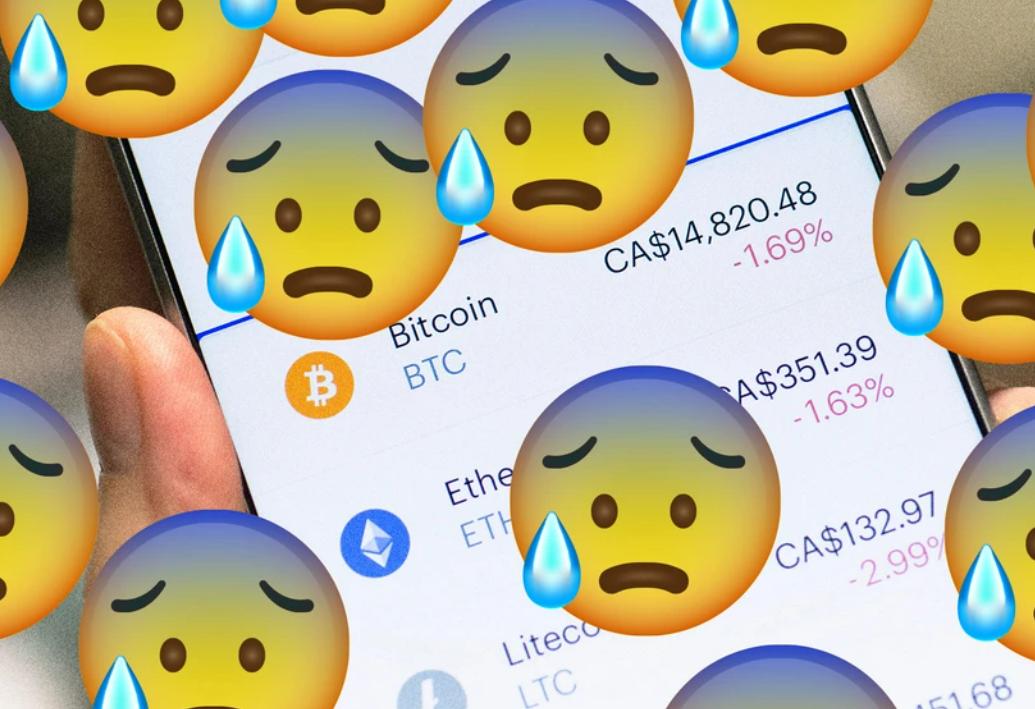As sanctions intensify, will the privacy coin sector迎来 a surge?
Author: Ekin Genç
Original Title: 《What Happened to the Dream of Private Cryptocurrency?》
Translated by: Hu Tao, Chain Catcher
War and protests should be significant moments for cryptocurrency, as it is built on the foundation of eliminating traditional authority. So far, cryptocurrency has played a crucial role in crowdfunding aid for Ukraine, with the government using nearly $100 million in crypto donations to purchase military and humanitarian equipment, while both Ukrainians and Russians are buying crypto stablecoins to escape currency fluctuations.
However, so far, the reverse attitude of cryptocurrency has been conflated with the sanctions that its gatekeepers (i.e., exchanges) must comply with.
Some observers, including Senator Elizabeth Warren, speculate that Russia may turn to blockchain to evade sanctions, although analyses from U.S. officials suggest otherwise. In fact, so far, cryptocurrency has not evaded U.S. sanctions. On March 7, Coinbase revealed that over time it has blocked more than 25,000 Russian addresses identified as participating in illegal activities, reportedly marking these addresses through its own "proactive investigations" and sharing them with the U.S. government to "further support sanctions enforcement."
So far, major cryptocurrency exchanges have rejected the Ukrainian government's request to ban all Russian users, which would go beyond the current sanctions. However, Kraken CEO Jesse Powell stated on Twitter that the exchange would comply if legally required to do so.
One rebuttal to the argument that crypto can be used to evade sanctions is that Bitcoin and Ethereum are too transparent. It is easy to observe large amounts of funds being injected into the blockchain through blockchain explorers, and in most cases, they can even be linked to individuals using the right tools. This has led some commentators to state that if crypto is to fulfill its original promise, for better or worse, it needs to be more private.
Enter the so-called "privacy coins." Bitcoin is the largest cryptocurrency in the world, with high liquidity and easier to cash out, and it was once associated with online drug transactions because dealers on the dark web accepted the emerging digital payment option under the promise of anonymity. However, as Bitcoin has been accepted by a broader societal group and anonymous transactions began to be linked to the individuals behind them, the proportion of illegal activities has decreased, giving way to privacy coins like Monero and Zcash.
Perhaps driven by news of sanctions, leading privacy coins experienced a price surge this week, with the $10 billion privacy coin market soaring 10% in 24 hours before cooling down.
What are privacy coins?
At the core of the issue is that cryptocurrencies typically allow anyone to view their transaction history through blockchain explorers (like Etherscan for Ethereum); it is easy to look up the activities of pussyriot.eth on the Ethereum network. This transparency also means that financial institutions and government agencies can flag cryptocurrencies used for crime, making it difficult for holders to cash out illicit gains without being detected.
In response to the inherent transparency of the blockchain, a wave of tokens has emerged that deploy some of the most innovative cryptographic technologies in the crypto industry.
First is Monero, which has been around since 2014. It uses three cryptographic techniques to keep all transactions confidential: stealth addresses (which automatically generate a one-time address for the recipient in each transaction), ring signatures (where a group of signatures involves at least one real person, this time to protect the sender's identity), and ringCT (an improved version of ring signatures).
Another privacy coin is Zcash, which relies on a cryptographic technology called zk-SNARKs or zero-knowledge succinct non-interactive arguments of knowledge. Zero-knowledge proofs convey that something is true without revealing the data that proves it— for example, verifying that you are over 21 without disclosing your age or birthday. In this way, it "shields" the sender, receiver, and transaction details. However, Zcash's privacy features are optional, unlike Monero's, which are default.
Launched in 2016 and developed by Electric Coin Co., Zcash's growth marketing lead Chris Tomeo told Motherboard that they are betting on the future of privacy coins because "as consumer data continues to be abused and exploited, and as legislators and policymakers gain a better understanding of how cryptocurrencies work, people are beginning to see the importance of privacy for personal safety, business security, and national security."
Dash, which was previously known as Darkcoin before rebranding due to its association with the dark web, is another privacy coin launched in 2014. To privatize transactions (which can also be optional, like Zcash), Dash deploys a mixing cryptographic technique called CoinJoin to obscure transaction details. It has some appeal in Venezuela, which has been hit by inflation, and after a comprehensive marketing campaign by Dash, including billboards and distributing phones with pre-installed crypto wallets, it has been accepted by major real estate agencies like Re/Max and fast food chains.
So far, Monero is the clear winner in terms of adoption.
"When people say 'privacy coins,' they are almost certainly referring to Monero. The number of privacy transactions in Monero exceeds the total of all other cryptocurrencies combined. In February 2022, the number of transactions in Monero that hide the sender, receiver, and amount was over 100 times that of Zcash. Vikrant Sharma, CEO and founder of CakeWallet, told Vice. According to platform data, Cake Wallet has over 250,000 users who exchange hundreds of millions of dollars in Monero within the app each year.
According to BitInfoCharts, although Monero is the king of privacy coins— it is now a popular choice in online drug transactions— it still lags significantly behind cryptocurrencies like Bitcoin and Ethereum in terms of daily transactions. Today, Ethereum records over 1 million transactions daily, Bitcoin around 300,000, while Monero stands at 25,000.

Can privacy coins be used to evade sanctions?
Now you might be wondering: Can Russians— or individuals from other sanctioned countries— evade sanctions by using privacy coins?
Jake Chervinsky, policy head of the blockchain association, a lobbying group for the cryptocurrency industry, stated: "No amount of privacy can protect Russia from the devastating effects of sanctions, regardless of what currency they try to use; sanctions have isolated them from the Western economy."
Chervinsky said that the Russian cryptocurrency market lacks sufficient liquidity to facilitate large-scale sanction evasion, "not to mention the market segment of assets with strong privacy features. If Russia tries to purchase large amounts of such assets, the whole world will see it immediately," he said.
Although trading privacy coins obscures curious observers in crypto (thus there is no equivalent of Monero like Etherscan for Ethereum), the total transaction volume of all transactions can still be tracked. According to CoinGecko, Monero recorded only $112.5 million in transaction volume in the past 24 hours, and its liquidity— or cash available for conversion— is not even enough to accommodate the assets of a Russian oligarch.
"While some illicit actors, including ransomware organizations, use privacy coins to try to obscure their transactions, they have not been adopted as widely as one might expect. One reason is that they lack the liquidity of Bitcoin and other cryptocurrencies. Especially now, many exchanges have delisted privacy coins under regulatory guidance, making them increasingly impractical," said Gurvais Grigg, Chief Technology Officer of the Global Public Sector at blockchain analysis firm Chainalysis.
"Cryptocurrency is only useful when you can buy and sell goods and services or cash out into fiat currency, and this is much more difficult for privacy coins," he added.
Despite limited acceptance and legitimate use by privacy-conscious individuals, Monero is particularly popular in ransomware and criminal transactions on the dark web. This has angered U.S. regulators, leading government agencies to spend $8.5 million contracting with blockchain analysis firm CipherTrace (recently acquired by MasterCard) in an attempt to crack the privacy coin and its blockchain transaction records.
"Organizations like CipherTrace exist because transparent cryptocurrencies have fatal privacy flaws," said Seth for Privacy, an anonymous Monero community organizer. "They have shown a clear ability to track transparent cryptocurrencies like Bitcoin and those that only offer optional privacy like Zcash very easily and effectively." However, when it comes to Monero, Seth expressed skepticism about whether the company's tracking capabilities are as strong as they claim.
CipherTrace declined to comment.
Can other cryptocurrencies be more private?
However, despite their inherently transparent design, privacy is not the reason for the failure of major cryptocurrencies.
According to Dune Analytics, for better or worse, users seeking privacy are turning to so-called privacy mixers like Tornado.Cash, which processes hundreds of millions of dollars daily. Tornado.Cash was launched in August 2019 and uses zero-knowledge proofs similar to Zcash on the Ethereum network. Users can send 1, 10, or 100 ETH to the mixer protocol and expect to receive funds at another Ethereum address that only they know.

Image: Dune Analytics
But these transactions can potentially be dissected by persistent analysis firms with the financial and technical capabilities, as recently revealed by journalist Laura Shin in a sensational investigation into one of the biggest mysteries in crypto, where the highly private Wasabi Bitcoin wallet was implicated.
Sharma of CakeWallet explains that crypto privacy projects like Secret Network and Thorchain have begun integrating with Monero to use the asset on their platforms. Beyond Monero, some projects are also slowly moving towards privacy. Litecoin, launched in 2011 and currently the 21st largest cryptocurrency by market cap, plans to add an optional feature called MWEB to better obscure some transaction data, while Zcash is working on making it easier to automatically send funds to shielded pools— an optionally private chain.
Although U.S. government officials and cryptocurrency experts state that privacy coins (or any type of cryptocurrency) cannot actually be used to evade sanctions, the idea that Russia could use privacy coins resonates within the privacy coin community, which views privacy coins as similar to other privacy-protecting technologies like Tor or Signal, which equally help "good" people and "bad" people, because if they are to work, they must do so.
"When cryptocurrencies like Monero can be used to protect wealth, escape authoritarian regimes, or fund political dissidents in oppressive states, they can also be used to evade sanctions or violate existing laws," Seth said in a speech, though he added that he believes these views are widely shared within the Monero community.
"This is the harsh reality of technology, which applies to smartphones, internet access, and cash, all of which are used more commonly for 'evil' things compared to today's cryptocurrencies," he added.












